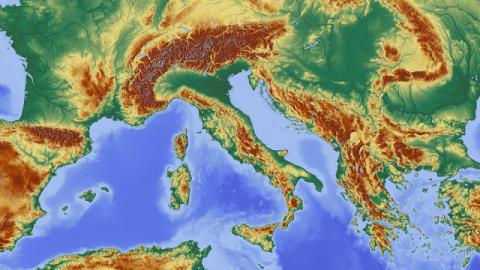Geopolitical Poker in the Western Balkans

Many people wonder why the issue of the Former Yugoslav Republic of Macedonia's name reappeared all of a sudden. The answer lies in the geopolitical game that is being played out in the Western Balkans, Ekathimerini writes. The European leadership - Berlin, Brussels and the other important players - believes that 2018 will be a crucial year for the bloc's interests in this neighborhood.
Russia, meanwhile, is playing a lone hand and sees the Western Balkans as the European Union's soft underbelly and a possible foothold. This is more than apparent in the case of Serbia, which is vacillating between Russia and the West. China is attending to its interests in a quieter manner, with major infrastructure investments in the context of the Silk Road initiative. And even Turkey and some of the theocratic Gulf states are looking to control the Muslim population in the region.
The European Union and the United States understand the challenges and are determined that all or most of the Western Balkan countries join the EU and NATO. For Brussels, a major prerequisite is that the many historical differences dividing these countries are settled. This is a long list and includes Kosovo's status vis-a-vis Serbia as well as territorial disputes. In FYROM's case, it is all about the name and European leaders do not want to leave the country out in the cold. They believe that Nikola Gruevski's defeat has presented a rare opportunity for a solution but also predict that his more moderate successor, Zoran Zaev, will face a lot of opposition inside the country.
The peculiarities of the Trump administration mean that America both is and isn't involved in this game. The fact is that it took the intervention of a mid-level diplomat to unblock...
- Log in to post comments







